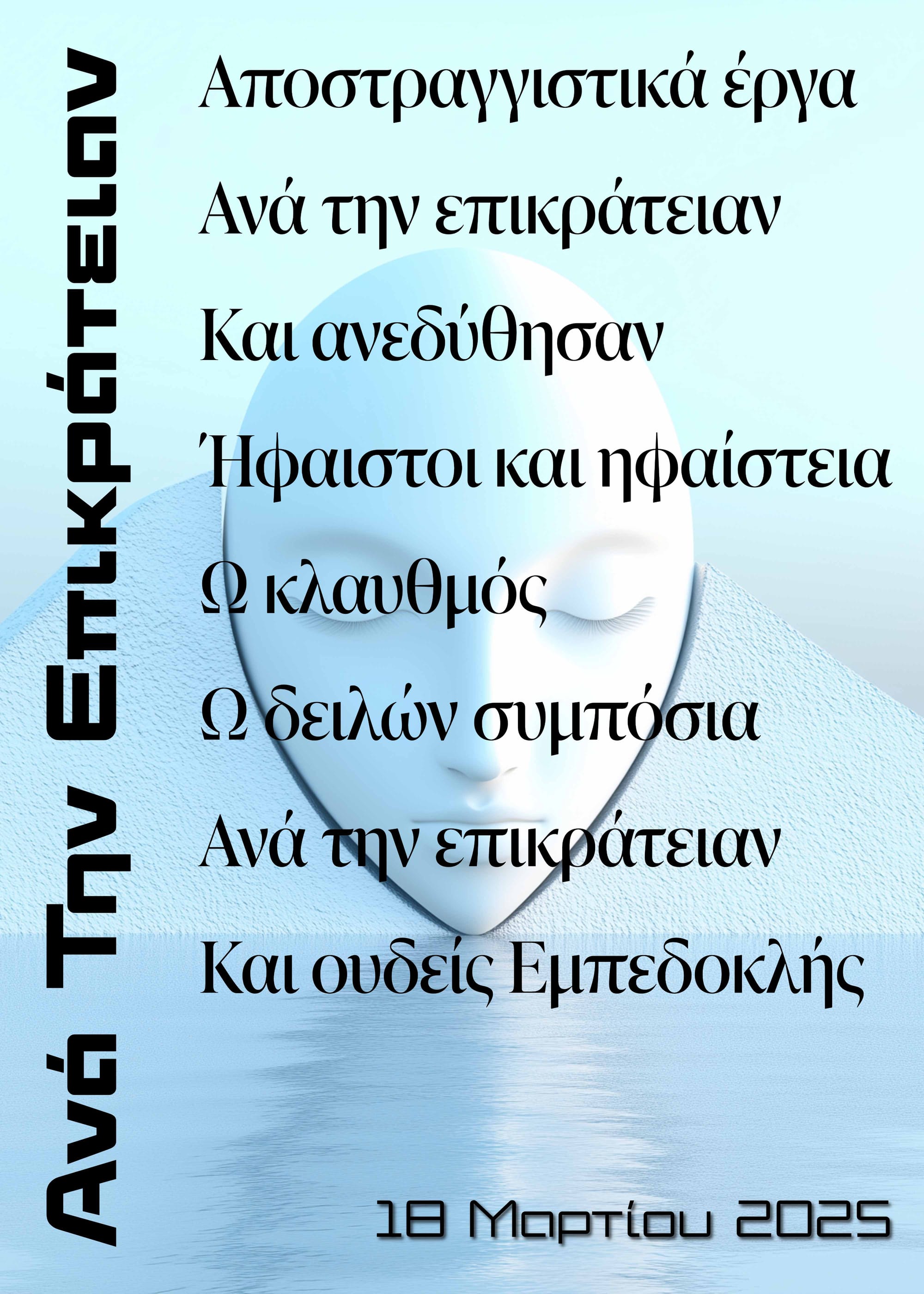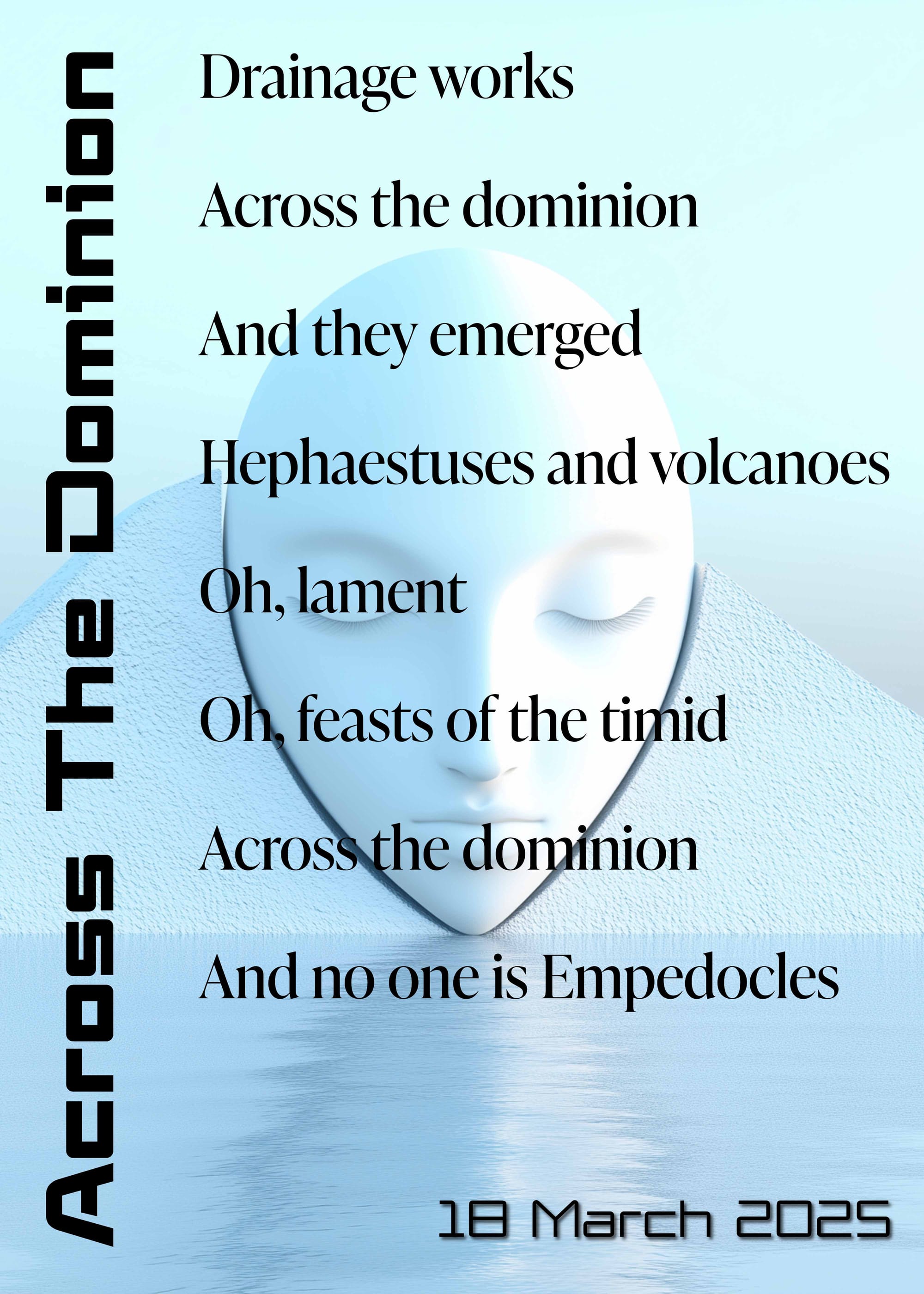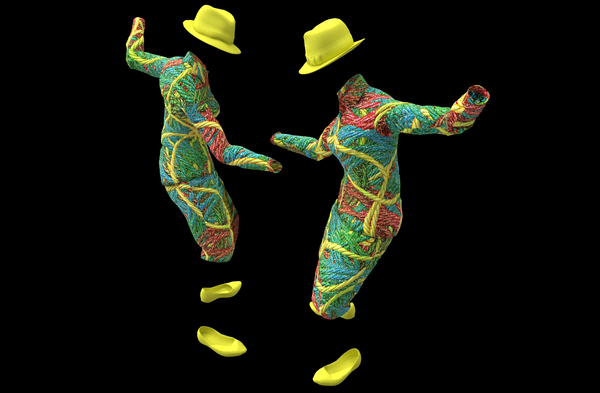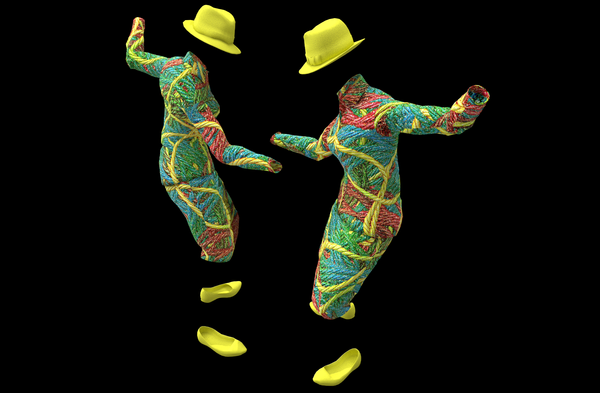📍 When wisdom fades, and history’s cycles repeat
Empedocles was a philosopher and poet, a thinker who saw the world not as a series of random events but as a continuous interplay between the four elements: earth, water, air, and fire. To him, life and death were cyclical phenomena, with the forces of love and strife alternating, creating and destroying everything. His philosophy was one of balance, cosmic cycles that guided existence. He saw beyond the moment, the fleeting concerns of his era, into the vast, repeating patterns of the universe. He understood that civilizations rise and fall, that pursuing power often leads to its downfall, and that humanity is doomed to repeat past errors without reflection.
But today, "No One Is Empedocles."
There is no longer someone who will stand in the fire to speak the truth. No one can remind us that the world is not linear but cyclical, that human history is not an endless march toward progress but a repetition of the same mistakes disguised in new eras and new technologies. No one can remind us that war lurks in the shadows for every period of peace and that for every golden age of prosperity, corruption, and decay are inevitable counterparts. Instead, we are swept away by illusions of permanence, believing that what we build will last forever when, in reality, everything follows the same pattern of rise and collapse.

The Absence of Wisdom
We live in a world flooded with information but starving for wisdom. Knowledge is more accessible than ever, yet thinkers who can interpret it and transform it into something meaningful are becoming rare. Facts surround us, but we cannot weave them into understanding. We are conditioned to react rather than reflect, to consume rather than contemplate. We chase trends, but we have lost the art of looking inward. We mistake noise for knowledge, action for wisdom, and fleeting innovations for lasting change.
Empedocles believed proper understanding requires introspection and a constant connection with nature and the laws governing the world. Today, however, we are drifting further away from this understanding. We have no time to look at the sky, listen to the earth beneath our feet, or feel the significance of things beyond the surface. With all its conveniences and distractions, the modern world pulls us away from deeper contemplation. The more connected we become digitally, the more disconnected we are from the elemental truths Empedocles once spoke of. We exist in a state of constant stimulation but little true thought.
The Cycle of Forgetting
History shows us that when a civilization moves away from wisdom, it repeats the same mistakes. The fall of Rome, the Dark Ages, and the disasters that follow every period of excessive power, arrogance, and indifference seem to be just another cycle of the same story. Civilizations rise, grow, overreach, and crumble. The actors change, but the plot remains eerily familiar. And yet, each generation believes itself to be unique, exempt from past mistakes, as if technology alone can protect us from the fate of those who came before.
The world is burning, and we discuss the next spectacle to keep us distracted. The earth is changing, the waters are rising, the winds are becoming wilder, and the fires are consuming. And yet, no Empedocles is here to speak to us about the interconnectedness of things, about the need to understand before it is too late. We dismiss history as irrelevant as if it holds no lessons for our modern world, and as if our technology has somehow exempted us from the fundamental laws that have governed civilizations for millennia. We do not stop to ask whether we are walking the same path that led others to ruin, whether the ambition we glorify today is simply another version of the hubris that once brought empires to their knees.
We believe in limitless progress, infinite growth, and the idea that we can push the boundaries of nature without consequence. We extract, consume, and destroy, never considering that the forces of balance Empedocles once spoke of will eventually reassert themselves. We are convinced we can master fire and control the elements, but history tells us otherwise.

Can We Find Empedocles Again?
The answer may lie within us. We may not need a new sage to guide us. Instead, we must become the bearers of understanding, inquiry, and continuous searching. We must refuse to accept superficial knowledge and dig deeper. We must recognize the signs, read history with an eye for its lessons, and break free from the illusion that we are different and immune to the cycles of rise and fall. Wisdom is not a relic of the past; it is something we must actively seek, requiring patience, humility, and the willingness to question.
According to legend, Empedocles disappeared into Etna's volcano, returning to the fire from which, perhaps, he was born. Today, we are standing at the crater's edge, looking at the lava simmering beneath our feet. We are poised at a threshold, a moment of decision: will we continue down the well-trodden path of arrogance and forgetfulness, or will we seek wisdom before it is too late?
Glossary of Key Terms
- Empedocles: A pre-Socratic Greek philosopher known for his cosmology based on the four elements (earth, water, air, fire) and the forces of love and strife, as well as his belief in the cyclical nature of existence.
- Cyclical Nature of History: The concept that historical events and patterns tend to repeat themselves over time, rather than following a linear path of continuous progress.
- Wisdom: The ability to discern what is true, right, or lasting; deeper understanding and insight into fundamental truths, often gained through experience and reflection.
- Knowledge: Information, facts, or awareness gained through experience or education; the theoretical or practical understanding of a subject.
- Introspection: The examination or observation of one's own mental and emotional processes.
- Cosmic Balance: The idea of equilibrium and harmony within the universe, often referring to the interplay of fundamental forces or elements.
- Linear Progression: The belief that history moves forward in a straight line of continuous improvement and advancement.
- Hubris: Excessive pride or self-confidence; arrogance that often leads to a downfall.
- Interconnectedness: The state of being connected with each other; the idea that different parts or aspects are linked and influence one another.
- Superficial Knowledge: Understanding that is shallow, incomplete, or lacking in depth and critical analysis.
Will we dive blindly into it or seek the lost Empedocles within ourselves? Will the fire consume us, or will we learn to harness, understand, and respect its power? The choice is ours, and it is more urgent than ever. The fire does not ask who is watching—it simply burns. Whether we learn from it or perish by it is up to us.
Perhaps Empedocles is not gone. Maybe he lingers in the echoes of forgotten wisdom, in the whispers of history, waiting for those willing to listen. Maybe the age of philosophers has not ended but is only sleeping, waiting for those bold enough to awaken it.
But today, "No One Is Empedocles." Will that remain true tomorrow?





